The Best Home Gym Equipment
All the advice you need to buy the right weights and cardio machines for your home set-up
Creating a home gym might seem like a huge expense and a fair bit of work – lugging home heavy weights from a shop or putting together a treadmill is no walk in the park – but it can be a worthwhile investment. Consider how much time you’ll save travelling to and from the gym, and how much cash you’ll save on membership fees in the long run.
Another advantage is that when assembling your own home workout area, you obviously only need to buy the equipment you’ll actually use. If you’re spending £100 a month on a gym membership and only using the exercise bike and a couple of dumbbells, getting those items for your house is going to save you money within months. Home gym equipment also doesn’t need as much room as you might think, with folding versions of cardio machines and weights systems available for those tight on space.
Below you’ll find our round-ups of equipment to consider for a home gym. Click through and you’ll find our top picks for the most common types of cardio machine and free weights.
Treadmills
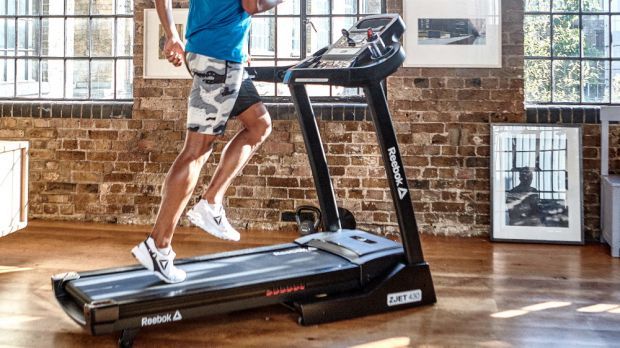
Some people might scoff at the idea of buying a home treadmill (“Why not just go outside? It’s free!” they’ll smugly remark, before sitting back down on the sofa) but those people almost certainly haven’t tried to train through the bitter UK winter. Treadmills are expensive – expect to pay £500 to £1,500 for a machine capable of handling everything a regular runner would want, and £300 to £500 for a beginner machine – but if all you do is run, your own machine is a better investment than a gym membership in the medium term.
RECOMMENDED: The Best Treadmills For Home
Exercise Bikes
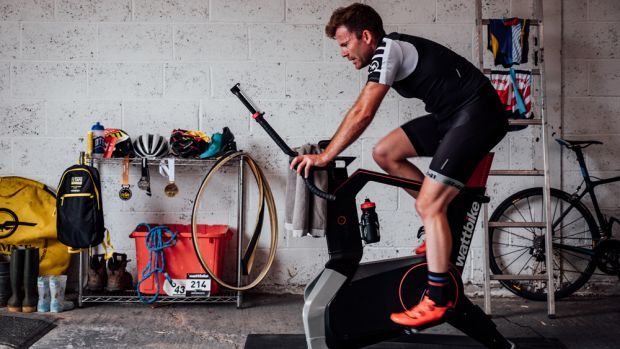
You can pick up an excellent exercise bike for under £150 or bag an elite-standard bike for around £2,000, so if you’re currently spinning away at the gym it can make a lot of sense to move your training home. Cycling apps like Zwift and The Sufferfest provide all the motivation you’ll need during your sessions – or you can just stick on the TV.
RECOMMENDED: The Best Exercise Bikes For Home
Spinning Bikes
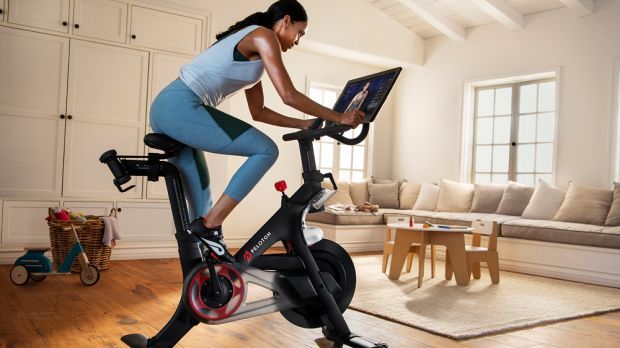
Spinning bikes, also known as indoor cycles, are exercise bikes designed for the high-intensity demands of spin classes. That usually means a hefty flywheel and adjustable resistance which can be changed quickly using a dial. The best-known (and most expensive) brand is Peloton, which offers two bikes, one just under and one just over £2,000. Each model features a built-in screen where you can watch spinning classes led by an instructor in the Peloton app (subscription required). There are cheaper alternatives, including options that also connect to an app for classes, which will set you back around £1,000. If you just want a spinning bike without connectivity, you can get them for around £500.
RECOMMENDED: The Best Spin Bikes For Home Training
Turbo Trainers
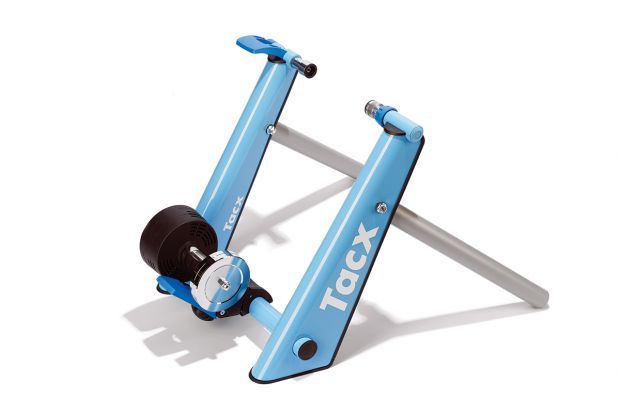
If you’re a dedicated cyclist, then picking up a turbo for your winter training is a no-brainer. Most riders will find all they need in turbos that cost under £150 and the very best are still under £1,000. Besides, the kit takes up next to no space, and it allows you to ride your top-notch racing bike without exposing it or yourself to the elements.
RECOMMENDED: The Best Turbo Trainers
Rowing Machines
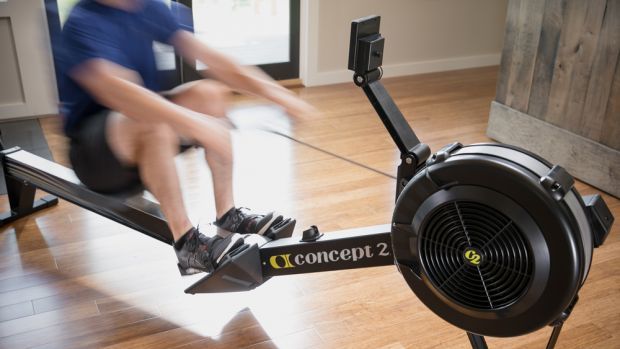
Another great option for a full-body cardio workout at home, rowers have the price edge on ellipticals. The very best machines – ones used by Olympians, no less – are around £1,000 and there are several options between £300 and £600 that will satisfy all non-Olympians. Most rowing machines also fold up so they can be tucked away in a cupboard.
RECOMMENDED: The Best Rowing Machines For Home
Cross-Trainers
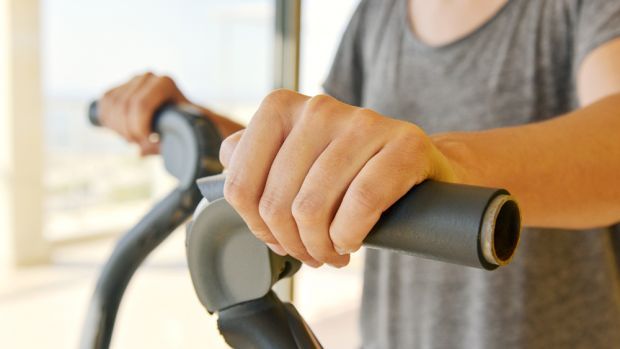
Cross-trainers, or ellipticals, have two major advantages over other cardio machines. The first is that they provide a full-body workout because you push with your hands while cycling your legs. The second is that they put your body under far less stress than running because your feet don’t leave the platforms while you move, which removes the impact on your joints. Cross-trainers are pricy – budget machines are £150 to £300, a sturdy home unit comes in somewhere between £300 and £700, and it’s well over £1,000 for a gym-standard machine – but you’ll need nothing else to get a good workout at home.
RECOMMENDED: The Best Cross-Trainers For Home
Dumbbells
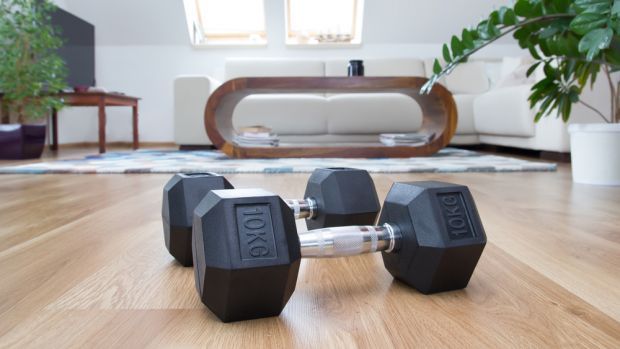
Dumbbells are the obvious pick for your first free weight purchase. They’re cheap, they’re usually adjustable so you can change the weight, and they can be used for a huge variety of exercises. There are few key choices to make with your dumbbells, including what material, shape and weight range you want. You’ll find all the info you need to make those choices, plus our top picks, in our best dumbbells round-up.
RECOMMENDED: The Best Dumbbells For Home
See related
- The Ultimate Home Workout Plan
- Home Workout For Shoulder Strength: Small Dumbbells, Big Shoulders
- Crush This 20-Minute Home Workout To Strengthen Your Upper Body
Kettlebells
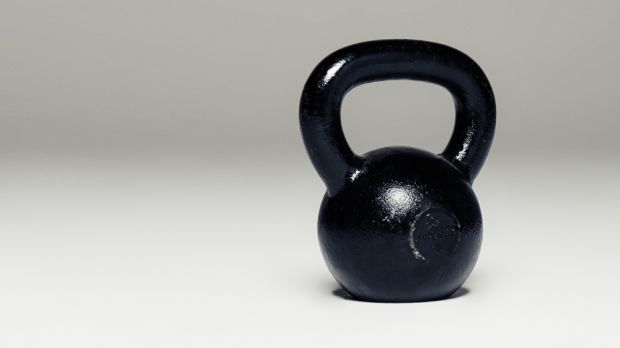
Plan your workout carefully and one good kettlebell is all you’ll need to work muscles all over the body and improve your cardiovascular fitness. Our buyer’s guide features advice from former British Kettlebell Sport champion Jamie Lloyd to help you pick out the very best bells.
RECOMMENDED: The Best Kettlebells For Home
Pull-up Bars
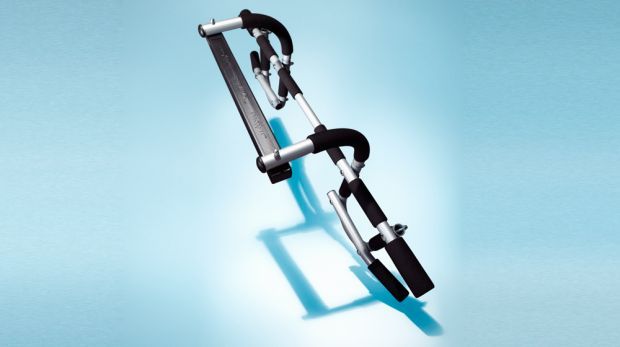
The pull-up is just about the toughest bodyweight exercise there is and if you want to improve your functional upper body strength, a pull-up bar should be the first bit of home gym kit you pick up. They’re cheap at around £20 for a basic bar they’re, plus they can be hooked over or fitted inside any doorway and then easily stored.
RECOMMENDED: The Best Pull-Up Bars For Home
Suspension Trainers
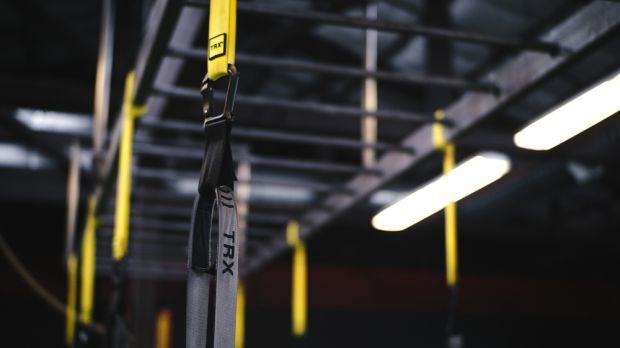
You’ll require a sturdy anchor point for the ropes, but if you do have a door, pole or ceiling that can take the weight, a suspension trainer is a terrific bit of home kit. Suspending one or more limbs in the handles of the trainer adds some instability to every exercise you do, so your core works overtime to keep you balanced. The TRX training system is the most well-known suspension trainer, but it’s not the only one and it’s by no means the cheapest – you can find suspensions trainers from as little as £15, with the priciest kits costing in the region of £150.
RECOMMENDED: The Best Suspension Trainers
Multi-Gyms
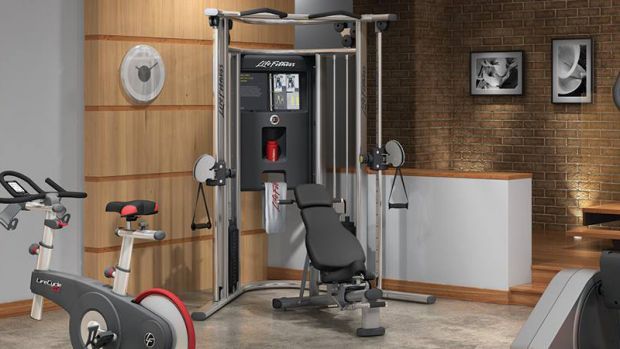
These are large and expensive, and can be a bit of a nightmare to set up if you don’t pay for assembly, but a multi-gym will allow you to take your domestic workouts to the next level. They combine the functions of several resistance machines in one unit, so you can challenge all your muscle groups with significant weight without the need for a spotter. The cheapest multi-gyms sit in the £250-£500 bracket but the price can rise above £5,000 depending on how many bells and whistles you want.
RECOMMENDED: The Best Multi-Gyms For A Full Weights Workout At Home
Resistance Bands
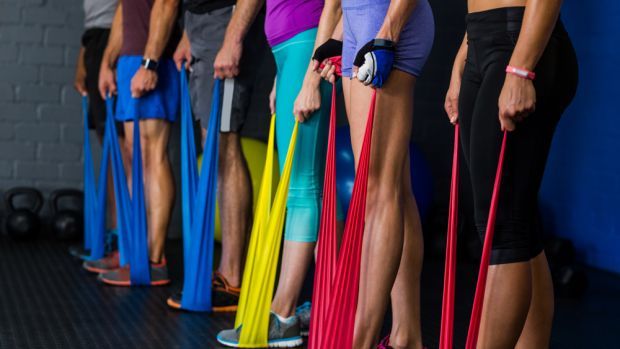
The first purchase you should make when kitting out your home workout space, because resistance bands are both very cheap and very effective at building strength, rehabbing injuries and improving your mobility. Plus they bundle up into a tiny package you can shove out of sight when you’re not using them. Generally you’ll pay £3-£8 for a single resistance band, and less than £20 for a set with several different levels of resistance.
RECOMMENDED: The Best Resistance Bands
Barbells
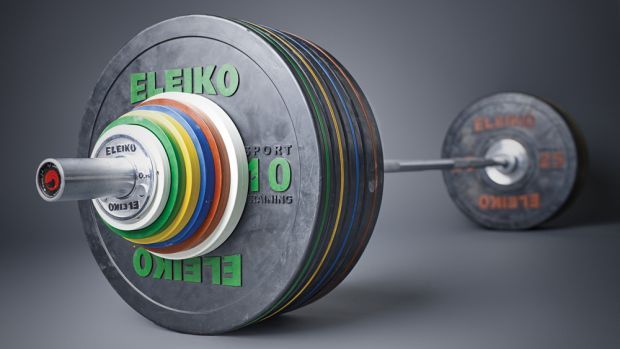
While you can achieve a lot with dumbbells and kettlebells, for powerhouse lifts and shifting a lot of weight, you need a barbell. It may look like a simple bit of kit but things can get technical quickly – whip, spin, knurl and tensile strength are all terms you’ll find thrown at you as you consider spending more money. Our guide explains all and will help you find a suitable model. Broadly, there are all-purpose bars for general weights sessions, while Olympic or powerlifting bars are better for more experienced lifters who are dedicated to a particular discipline. There are also trap or hex bars, which are great for doing deadlifts while going easy on your back.
RECOMMENDED: The Best Barbells For Your Home Gym
Weight Benches
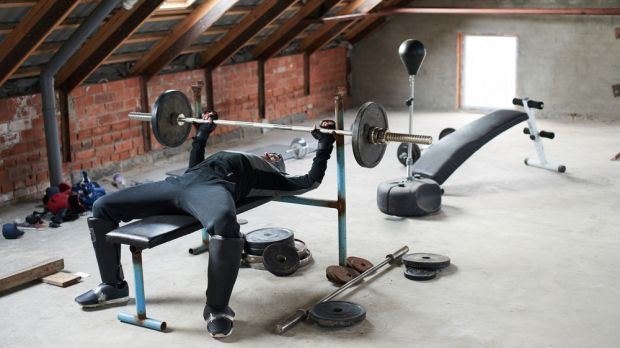
The bench press is the move most commonly associated with a bench, but it’s a useful bit of kit for all manner of other exercises as well, and it’s certainly worth getting a bench for your home gym if you are planning on doing a lot of lifting. An adjustable bench lets you add incline and decline variations to your workouts so you can hit your muscles from different angles, while a fixed, flat bench can handle more weight. You should also consider if you need one with a rack, which will be useful if you’re planning on performing heavy bench presses.
RECOMMENDED: The Best Weight Benches For Your Home Gym
Medicine Balls
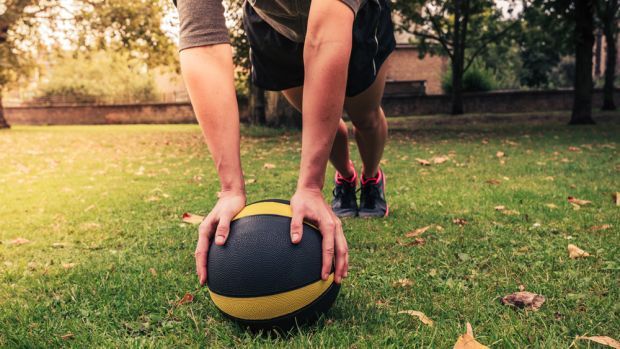
Adding a medicine ball to your home arsenal opens up a range of new exercises. Many involve slamming a ball into the floor or wall, which will help to develop your explosiveness and are particularly fun to do (at least at first – you’ll be blowing hard in next to no time). You’ll need an appropriately strong floor or wall, of course, and also make sure you opt for a slam ball if planning on using it as such, since there are also medicine balls with handles that are intended for moves like the woodchop or Russian twist.
RECOMMENDED: The Best Medicine Balls
Smith Machines
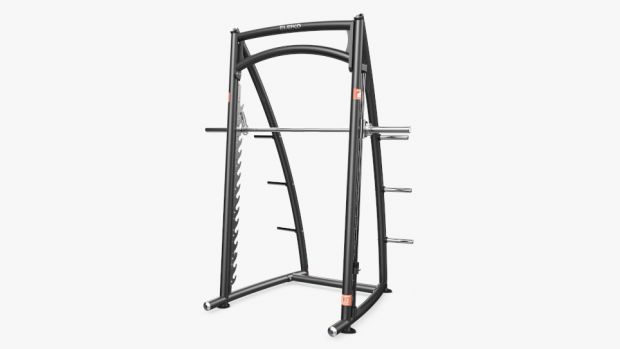
If you’re planning on doing really heavy lifts at home on your own then a Smith machine can be your technical spotter. The racking options on the unit ensure you can place the bar down safely during or after your lift as required. Smith machines don’t come cheap – they often cost more than £2,000 – but you can get them with an integrated bench and multi-gym attachments, giving you a comprehensive home gym set-up.
RECOMMENDED: The Best Smith Machines For Your Home Gym
Punching Bags
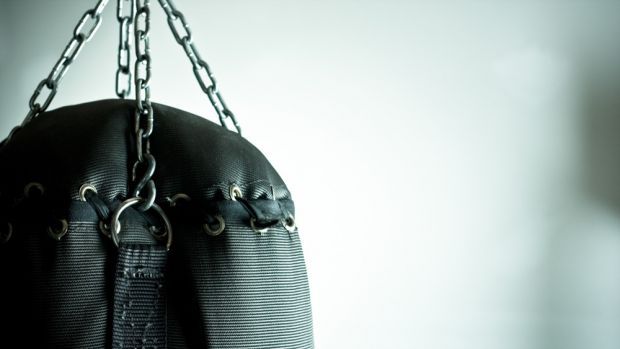
A simple and effective bit of home kit, a punching bag – if used regularly – will get you fit and strong in no time at all, and it’s also a fantastic way to vent any frustrations that have built up during the day. The price of bags ranges from around £50 to £500 or more, depending on the quality and durability of materials used – leather is the best. Make sure you also pick up a pair of boxing gloves too, because your hands won’t thank you for trying bare-knuckle boxing.
RECOMMENDED: The Best Punching Bags For Your Home Gym
Exercise Mats
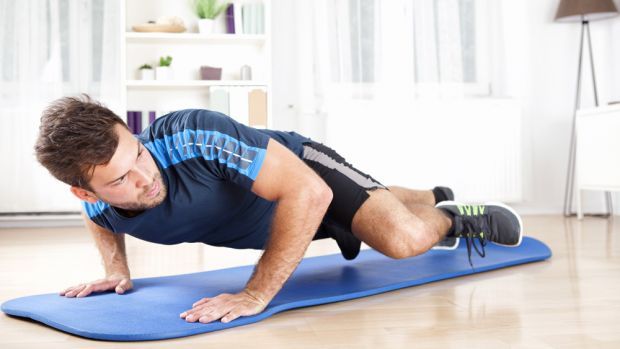
They might not be as exciting as other bits of home gym kit, but a good mat is an essential purchase. It will protect your floor from you and your weights, and provide some cushioning and grip. A cheap lightweight mat suitable for bodyweight workouts will cost under £10, while more substantial ones to use with weights or even to go under cardio machines will cost between £50 and £100.
RECOMMENDED: The Best Exercise Mats For Your Home Workouts
Sign up for workout ideas, training advice, reviews of the latest gear and more.
